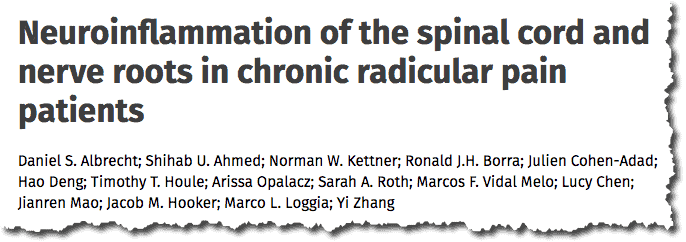
Scientists finally know why sciatica pain happens — and how to fix it
—-Important Message—-
The “length and girth” secret to a longer, thicker member
I’ve discovered this “length and girth” secret from an ancient Yurupari shaman living in a small Colombian village…

And it really works. It’s safer than stretching or jelqing, and it’s all-natural.
Here’s the length and girth secret to a longer, thicker member
———-
This cheap supermarket supplement can cure sciatica pain
Sciatica is a crippling pain syndrome that affects up to 5% of the population over the course of a lifetime.
Sciatic pain travels down the leg and is considered one of the most unbearable pain syndromes.
The cause of sciatica has been unclear – but now scientists have finally uncovered the cause of sciatica.
Imaging technology has revealed that inflammation of the nervous system affects sciatica sufferers.
This finding paves the way for more effective treatments and sciatica.

This human research was performed at the Massachusetts General Hospital. The results were published in the journal Pain.
This study looked at biomarkers of neuroinflammation.
This is inflammation of nervous system tissue. In this case, the nerve root and spinal-cord.
Scientists had already discovered a link between neuroinflammation and pain in animals.
“Studies support the role of spinal neuroimmune activation in the pathogenesis of chronic pain in laboratory animals.”
But prior to this there had been no human studies on neuroinflammation and pain.
“The translation of those findings into treatments has been hindered by the scarcity of data supporting the role of neuroinflammation in human pain.”
So the study recruited 19 people with chronic radiculopathy — a condition that comprises sciatica and lower back pain.
10 healthy volunteers were also recruited and used for comparison.
The researchers took advantage of two advanced imaging technologies.
They used magnetic resonance imaging (MRI) and PET scan technology.
The participants were administered a substance which binds to a biomarker of neuroinflammation. The PET scan then detected where this substance went in the body.
The areas that lit up the PET scan identify regions of high inflammation.
The study showed that there is increased inflammation in the spinal-cord and nerve root of people suffering with sciatica.
“Patients suffering from lumbar radiculopathy (sciatica) exhibit elevated levels of the neuroinflammation in the nerve roots and spinal cord.”
This is the first time that a scientific study has shown the cause of sciatica in humans.
All the volunteers had slightly different pain syndromes. They had different degrees of pain in different regions.
Pain intensity was mirrored by the level of inflammation revealed by the scans.
“These elevations demonstrated a pattern of spatial specificity correlating with the patients’ clinical presentation.”
The scientists also discovered a correlation between inflammation and the beneficial effect of steroids.
Steroid injections can lower pain in some sciatica sufferers — but these steroids are useless for others.
“The inflammatory pattern was associated with responses to epidural steroid injections.”
This scanning technology can tell doctors which patients will respond to epidural steroid injections.
These injections can be quite painful and cumbersome. In the future, this could prevent unnecessary epidural injections for people in which there is no benefit.
The scientists believe that these discoveries can lead to new treatments for sciatica.
Future treatments can target the activation of the immune system which causes neuroinflammation.
“These results suggest that therapies targeting immune cell activation may be beneficial for chronic pain patients.”
The scientists conducting the study recommend larger human trials.
The findings should prompt investigation into treatments to lower immune activation of the nervous system.
Neuroinflammation is also found in other diseases, like Alzheimer’s disease, Parkinson’s disease, and Multiple Sclerosis.
There are a number of treatments already being used for neuroinflammation.
Unfortunately, many of the treatments used for neuroinflammation have bad side effects (aspirin seems to be the safest).
Exercise is another treatment for neuroinflammation.
I like intense and brief exercises such as lifting heavy weights and sprints…
Or intense stair climbing for 5 minutes, as these do the most to activate muscles and lower inflammation…
…without stressing the body the way aerobics can!
It’s all about lowering inflammatory messengers affecting the nervous system.
—-Important Message for Men in Pain—-
This cheap supermarket supplement stops pain completely in 2 weeks or less
It’s been covered up for decades…
One scientist even got his license revoked and his whole career steamrolled…
All because this one cheap supermarket supplement cures arthritis and nerve pain.
It costs just a few bucks and you don’t need a prescription.
And once you start using it, the pain stops…forever…
There’s no getting hooked on painkillers or having to commit to expensive treatments for life.
Just use this cheap supermarket supplement to live a pain free life in 2 weeks or less
———-

Neuroinflammation of the spinal cord and nerve roots in chronic radicular pain patients
https://insights.ovid.com/crossref?an=00006396-201805000-00016
